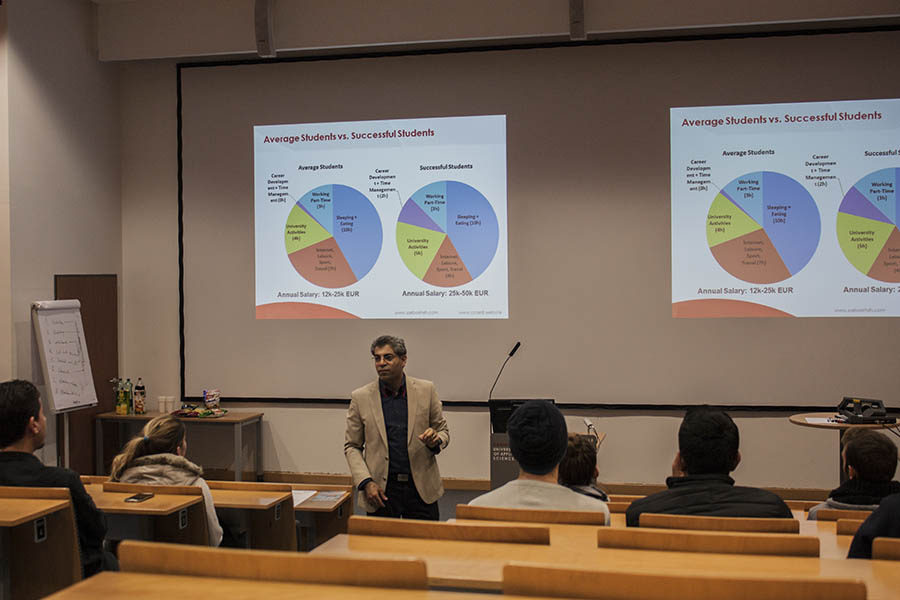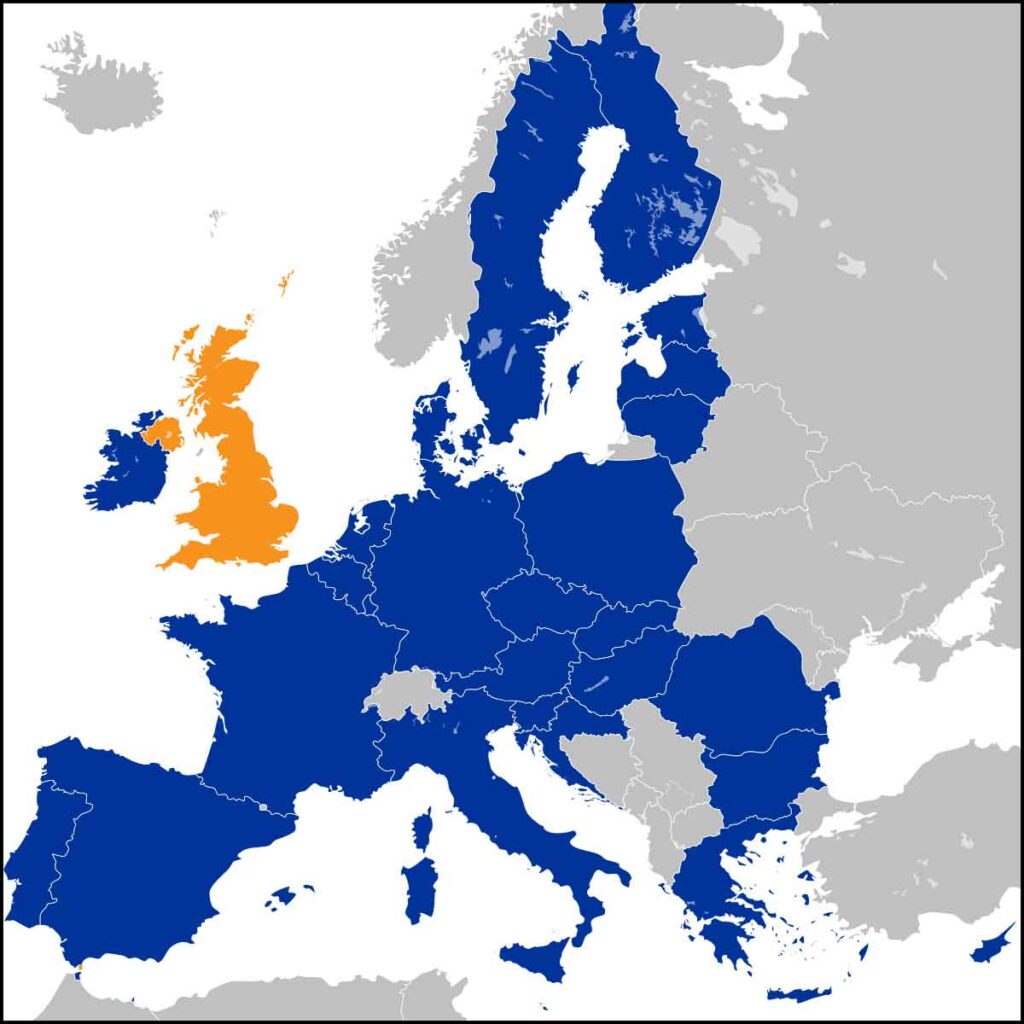Studying abroad in Europe can be a life-changing experience for students seeking to broaden their horizons and gain a global perspective. However, navigating the application and enrollment process can be challenging, especially for international students who may not be familiar with the higher education systems in Europe. This is where study in Europe consultants can be a valuable resource, offering personalized guidance and support throughout the process.
While study in Europe consultants can be helpful, it’s important for students to be aware of the potential limitations and drawbacks of these services. In some cases, consultants may recommend expensive universities or programs that could leave students with high levels of debt. Additionally, some consultants may not provide ongoing support during the study period, leaving students without guidance on finding part-time or full-time jobs, or even dealing with emergencies or unexpected issues that may arise.
In this comprehensive guide to study in Europe consultants, we’ll explore the benefits and limitations of these services, provide alternatives for students to consider, and offer tips from a mentor with extensive experience working with students and consultants to help students make informed decisions when choosing a study abroad advisor.

Benefits and Limitations of Study in Europe Consultants
While study in Europe consultants can provide valuable assistance to students seeking to study abroad, it’s important to understand both the benefits and limitations of these services.
Benefits:
- Personalized guidance: Study in Europe consultants can provide tailored advice and support to help students navigate the complex process of applying to universities and programs in Europe.
- Access to resources: Consultants often have extensive knowledge of the higher education systems in Europe, as well as access to a wide range of resources that can be helpful to students.
- Assistance with paperwork: The application and enrollment process can involve a significant amount of paperwork and administrative tasks, and consultants can help streamline this process and ensure that students have submitted all necessary documents.
Limitations:
- Expensive recommendations: As mentioned earlier, some study in Europe consultants may recommend expensive universities or programs that may not be the best fit for students’ needs or budget.
- Limited support: While consultants can be helpful during the application and enrollment process, they may not provide ongoing support or guidance during the study period, leaving students without assistance in finding part-time or full-time jobs, or dealing with emergencies.
- Questionable practices: In some cases, consultants may engage in questionable practices, such as applying to universities on behalf of students or providing false information, which can result in serious consequences for students.
It’s important for students to carefully consider these benefits and limitations when deciding whether to work with a study in Europe consultant. In the next section, we’ll explore some alternatives that students can consider to help them achieve their study abroad goals.

Alternatives to Study in Europe Consultants
While study in Europe consultants can be a helpful resource for students looking to study abroad, there are alternative options that students can consider to achieve their goals.
- Educational acceleration programs: These programs offer an accelerated pathway to higher education in Europe, providing students with a faster and more cost-effective way to achieve their educational goals.
- Career acceleration programs: These programs provide students with the skills and knowledge they need to succeed in the European job market, often offering job placement assistance and other support services.
- Online resources: With the increasing availability of online resources, students can conduct their own research on universities and programs in Europe, without relying solely on the advice of study in Europe consultants.
- Mentorship programs: Personalized mentorship from an experienced professional can provide students with the guidance and support they need to succeed in their educational and career goals.
It’s important for students to consider all of their options and do their own research before making a decision on how to pursue their study abroad goals. While study in Europe consultants can be a valuable resource, they are not the only option, and each student’s situation is unique. By exploring different options and resources, students can make an informed decision that best suits their needs and goals.

Tips for Choosing a Study Abroad Consultant or Mentor
If a student decides to work with a study abroad consultant or mentor, it’s important to choose someone who is knowledgeable, trustworthy, and able to provide the necessary support throughout the entire study abroad process. Here are some tips for choosing a study abroad consultant or mentor:
- Research and compare: Before choosing a consultant or mentor, do your research and compare different options. Look for online reviews, check credentials, and ask for references.
- Ask questions: When talking to potential consultants or mentors, ask questions to ensure that they have the necessary experience and expertise to help you achieve your study abroad goals.
- Check for certifications: Many study abroad consultants and mentors are certified by professional organizations, which can be an indicator of their expertise and professionalism.
- Consider their network: A consultant or mentor with a strong network of contacts in your desired field or location can be valuable in providing you with job or internship opportunities and other support services.
- Personal connection: It’s important to choose a consultant or mentor who you feel comfortable working with and who understands your unique needs and goals.
By taking the time to research and choose a study abroad consultant or mentor who meets your needs and requirements, you can have a more positive and successful study abroad experience.

Tips from a Mentor
While study abroad consultants can provide valuable support and guidance, there are also many other resources available to students who are considering studying abroad. According to a mentor with extensive experience working with students and study abroad consultants, here are some tips to keep in mind:
- Don’t feel like you have to use a study abroad consultant: With the help of the internet and social media, students now have more access to information and resources than ever before. Don’t feel like you have to use a study abroad consultant if you don’t want to – there are other options available.
- Consider a personalized mentor: While study abroad consultants can be helpful, a personalized mentor can offer even more support and guidance. Look for someone who has experience working with students who are studying abroad, and who can provide personalized recommendations and guidance based on your specific needs.
- Don’t choose the most expensive option: Some study abroad consultants may suggest expensive universities or programs, which can lead to significant financial strain for students. Do your own research and consider a range of options to find a program that is both affordable and meets your needs.
- Look for support throughout your entire study abroad experience: While many study abroad consultants may only offer support during the application process, look for resources that can support you throughout your entire study abroad experience. This can include help with finding part-time or full-time jobs, connecting with other students, and adjusting to a new culture.
By keeping these tips in mind, students can have a successful study abroad experience with or without the help of a study abroad consultant.

Countries and Universities in Europe
There are many countries in Europe that offer excellent opportunities for students looking to study abroad. Some of the most popular destinations include the United Kingdom, Germany, Austria, France, Spain, Italy, and the Netherlands. Each country has its own unique culture, language, and educational system, so it is important to research and choose the one that best fits your interests and goals.
When it comes to universities, Europe has a wide variety of top-ranked institutions that offer quality education and research opportunities. Some of the most well-known universities include the University of Oxford and the University of Cambridge in the UK, the Technical University of Munich and the University of Heidelberg in Germany, Sorbonne University in France, and the University of Amsterdam in the Netherlands. These universities offer a wide range of academic disciplines, from engineering and sciences to humanities and social sciences.
It’s important to note that the cost of tuition and living expenses can vary significantly between countries and universities. Students should research the costs and funding options available to them, including scholarships, grants, and student loans, to ensure they can afford their chosen program. Additionally, some universities have partnerships with study abroad programs or offer their own support for international students, which can make the transition to studying in Europe smoother and more manageable.
Which country and which University in Europe?

Studying in Europe can be a great opportunity for students from around the world, but it’s important to consider the cost of living and tuition fees before making a decision. The cost of studying in Europe can vary significantly depending on the country, city, and university you choose. In general, tuition fees in Europe are lower than in the United States and other countries, but living expenses can be high in some areas. It’s important to research the cost of living in the city or region where you plan to study.
One of the benefits of studying in some European countries, such as Germany or Austria, is that tuition is either free or very low. This is due to the fact that these countries have a strong public education system and the government provides funds to cover the cost of tuition for both domestic and international students. This makes studying in these countries a great option for those who are looking to reduce the overall cost of their education.
However, not all European countries offer free or low-cost education for international students. In countries like the United Kingdom or Switzerland, tuition fees can be quite high, with some universities charging up to $20,000 or more per year. It’s important to research the specific fees for the universities you’re interested in and consider whether you can afford to pay for your education in that country.
In addition to tuition fees, living expenses can be a significant cost for students studying in Europe. Accommodation, food, transportation, and other living expenses can add up quickly, especially in larger cities. It’s important to research the cost of living in the city or region where you plan to study and to consider options such as shared accommodation, public transportation, and other ways to reduce costs.
It’s also worth noting that there are opportunities for students to work part-time or take internships during their studies to help cover the cost of living. However, it’s important to check the regulations in your chosen country to ensure you are legally allowed to work while studying and to understand the limitations on the number of hours you can work.
In conclusion, the cost of studying in Europe can vary widely depending on the country, city, and university you choose. It’s important to research the cost of living and tuition fees in advance to ensure you can afford the expenses. Consider options such as free tuition countries or part-time work to help reduce costs.

Cost of Living in Europe
The cost of studying in Europe can vary significantly depending on the country and university you choose. While some European countries like Germany and Austria offer free or nearly free education, others such as the UK and Switzerland can be very expensive. In addition to tuition fees, you will also need to consider the cost of living, which can also vary widely depending on the country and the city you choose.
For example, the cost of living in London or Paris can be much higher than in smaller cities like Budapest or Krakow. The breakdown of expenses such as tuition, accommodation, transportation, and food can also vary depending on the location. Some universities may offer affordable on-campus housing, while others may require you to find your own accommodation in the city. It’s also important to consider the cost of transportation, such as public transport passes or the cost of owning a car.
While studying in Europe, many students choose to work part-time to help cover their expenses. However, it’s important to note that not all countries allow international students to work while studying, and some countries may have restrictions on the number of hours students can work. It’s important to research the regulations of the country you plan to study in before relying on part-time work as a source of income.
Managing your finances while studying abroad can be challenging, but it’s essential to plan a budget and keep track of your expenses. You may also want to consider opening a bank account in the country where you are studying to make it easier to manage your finances. Additionally, you can look for scholarships or grants that can help cover some of your expenses.
While the cost of studying in Europe can be high, many students find that the long-term benefits of studying abroad are worth the investment. Studying in Europe can provide you with a valuable education and cultural experience that can enhance your career prospects and personal growth. Moreover, studying in Europe can also provide you with opportunities to connect with other international students and build a global network that can be valuable throughout your life.

A Comparison: Germany, UK, Hungary, Spain, Austria and Cyprus.
Here are some examples of living expenses in Germany, UK, Hungary, and Spain:
In Germany, the cost of a room in a shared flat can range from €250 to €500 per month, while a studio apartment can cost around €400 to €800 per month. Public transportation is widely available, and a monthly pass costs around €80. Eating out at a mid-range restaurant can cost around €15 to €20.
In the UK, the cost of accommodation varies depending on the location, with London being the most expensive. A room in a shared flat can cost around £500 to £800 per month, while a studio apartment can cost around £800 to £1200 per month. Public transportation is also widely available, and a monthly pass for London’s transportation system costs around £130. Eating out at a mid-range restaurant can cost around £15 to £25.
In Hungary, the cost of accommodation is generally cheaper than in Germany and the UK. A room in a shared flat can cost around 80,000 to 120,000 HUF (approximately €220 to €330) per month, while a studio apartment can cost around 120,000 to 180,000 HUF (approximately €330 to €500) per month. Public transportation is also affordable, and a monthly pass for Budapest’s transportation system costs around 10,500 HUF (approximately €29). Eating out at a mid-range restaurant can cost around 2,000 to 3,000 HUF (approximately €5.50 to €8).
In Spain, the cost of accommodation and living expenses varies depending on the region. In Madrid and Barcelona, for example, the cost of living is generally higher than in other Spanish cities. A room in a shared flat can cost around €300 to €500 per month, while a studio apartment can cost around €500 to €800 per month. Public transportation is also widely available, and a monthly pass for Madrid’s transportation system costs around €54. Eating out at a mid-range restaurant can cost around €10 to €15.
In Austria, which is mostly similar to Germany, the cost of living can vary depending on the city you live in, with Vienna being the most expensive. A one-bedroom apartment in the city center can cost around 900-1,200 EUR per month, while a shared apartment can be around 500-800 EUR per month. Public transportation is reliable and relatively inexpensive, with a monthly pass costing around 50-80 EUR. A meal in an inexpensive restaurant can be around 10-15 EUR, while a mid-range three-course meal for two in a restaurant can cost around 50-70 EUR.
In Cyprus, the cost of living is generally lower than in other European countries. A one-bedroom apartment in the city center can cost around 400-600 EUR per month, while a shared apartment can be around 250-400 EUR per month. Public transportation is not very developed, so owning a car or a scooter might be necessary. The cost of a basic meal in a local restaurant can be around 8-15 EUR, while a mid-range three-course meal for two in a restaurant can cost around 50-70 EUR. The prices for food and groceries are generally affordable, and it’s possible to live on a budget while still enjoying a good quality of life.
It’s important to note that these costs are estimates and can vary depending on the specific location, lifestyle, and individual circumstances.

Conclusion: Study in Europe Consultants
In conclusion, study abroad consultants can be beneficial in providing guidance and support for students considering studying in Europe, but they also have their limitations such as their cost and the possibility of not understanding the specific needs of each individual student. Alternative resources such as online research and support groups in social media can also provide valuable information and connections for students. Ultimately, it is important for students to carefully consider their options and choose the approach that is best for them.
Throughout this article, we have covered a range of topics related to studying in Europe, including the benefits and limitations of study abroad consultants, information on countries and universities in Europe, and the cost of studying in Europe. We have also provided tips for managing finances while studying abroad and discussed the long-term value of studying in Europe.
In making the decision to study in Europe, it is important for students to consider their individual goals and needs, as well as the specific opportunities available in different countries and universities. Taking advantage of part-time job opportunities and other resources can help to manage the cost of living in Europe.
Overall, we recommend that students considering studying in Europe take the time to carefully research their options, consider their goals and needs, and connect with resources that can provide guidance and support along the way. By taking these steps, students can set themselves up for success and gain valuable experience and knowledge as they pursue their academic and professional goals.

